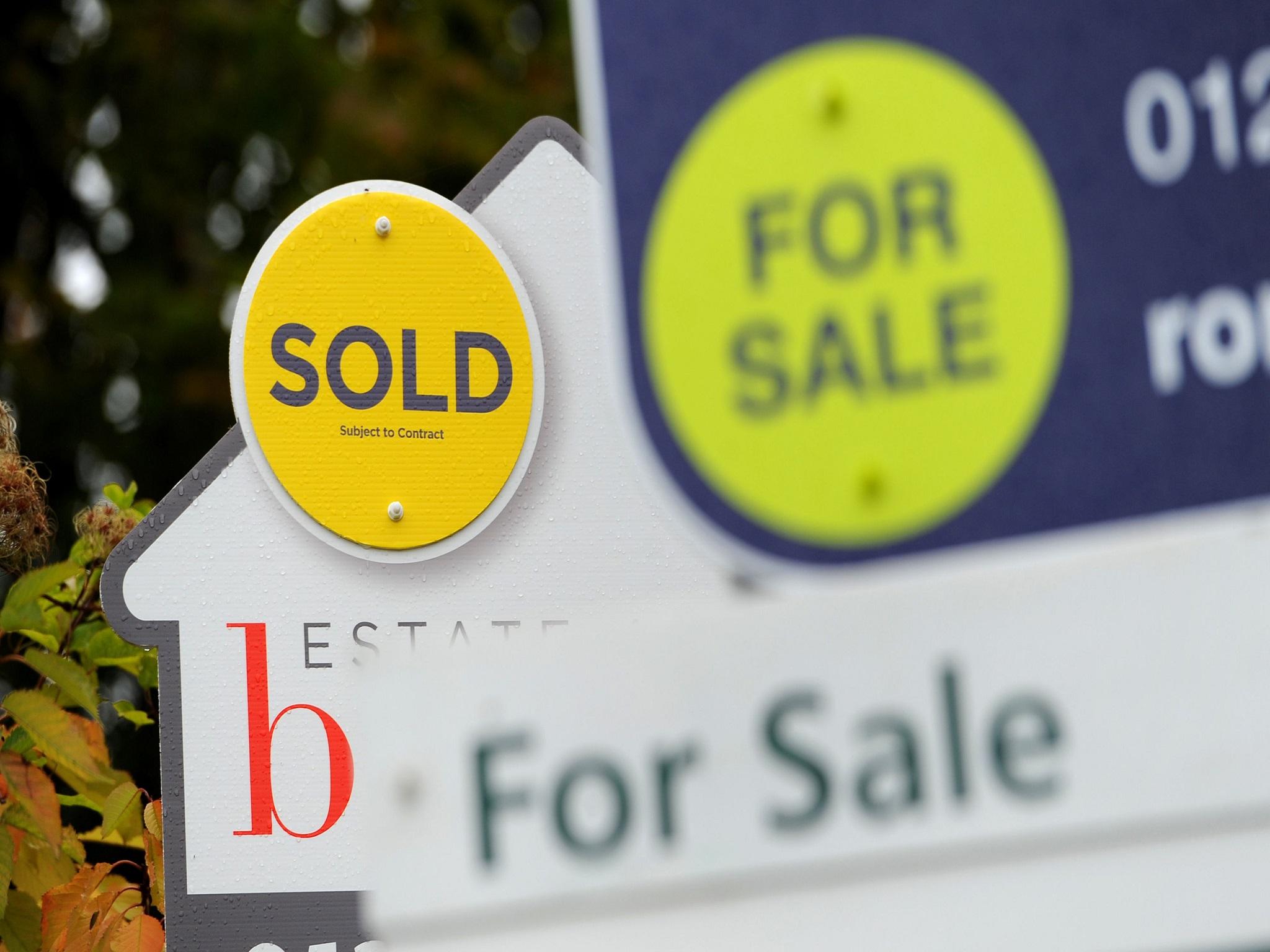First time buyers average age has risen by seven years since the 1960s, survey finds
In 1960, the average first-time buyer was just 23 years old, paying a deposit £595 on their first home – the equivalent of around £12,738 today.

Your support helps us to tell the story
From reproductive rights to climate change to Big Tech, The Independent is on the ground when the story is developing. Whether it's investigating the financials of Elon Musk's pro-Trump PAC or producing our latest documentary, 'The A Word', which shines a light on the American women fighting for reproductive rights, we know how important it is to parse out the facts from the messaging.
At such a critical moment in US history, we need reporters on the ground. Your donation allows us to keep sending journalists to speak to both sides of the story.
The Independent is trusted by Americans across the entire political spectrum. And unlike many other quality news outlets, we choose not to lock Americans out of our reporting and analysis with paywalls. We believe quality journalism should be available to everyone, paid for by those who can afford it.
Your support makes all the difference.The average first-time buyer is now seven years older than in 1960 and needs to save around £20,000 to be able to buy a home, a survey has found.
Most are 30 or older before they get onto the property ladder, the poll of 2,000 adults found. They will pay a deposit of £20,622.
In comparison, in 1960, the average first-time buyer was 23 years old, paying a deposit £595 on their first home – the equivalent of around £12,738 today.
“It’s worrying to see just how much tougher things have become, particularly since 2000, with the research showing house prices have risen by over £55,000 and the average deposit has increased significantly from £12,988 in 2000 to £20,622 today," said James Thomson, CEO of Keepmoat Homes, which commissioned the research.
“It isn’t surprising that the research revealed 69 per cent of people think it’s now harder than ever to buy a home."
Researchers found homebuyers in the 1960s spent just over two years saving a deposit of £595 – with an average household income of £2,854 at the time.
But those who have bought since 2011 spent more than five years saving a deposit of £20,622 - more than half the £35,634 average annual household income.
As a result, 48 per cent of people had help to the tune of £10,200 towards this cost from mum and dad.
In the 1990s the cost of a deposit was just over a quarter of the average household income of £20,591 and only 26 per cent of first-time buyers had financial help – an average of £3,881.
But while 84 per cent of first-time buyers were married in 1960, this has dropped to just 27 per cent in recent years. In fact, first-time buyers are more likely to be in a relationship today rather than married to their partner.
One in five first-time buyers today are single – compared to just three per cent in the 1960s.
The study also found 31 per cent of people are still living in the first home they bought, including one in 10 of those who bought in the 1960s and 15 per cent who bought in the 1980s.
However, two thirds of respondents think people are now more likely to end up purchasing a flat or small home, which they will have to move from in order to start a family, to get on the ladder.
“The situation for first-time buyers has become increasingly difficult but there are positive things happening too," Mr Thomson said. “This includes the Government’s Help to Buy scheme, which has already helped many people onto the property ladder, and the recent abolition of stamp duty for first-time buyers.
Profiles of the average first-time buyer through the decades, not taking inflation into account:
1960s
Age: 23
Married (84 per cent) In a relationship (13 per cent)
Household income: £2,854
House purchase price: £16,364
Deposit: £595.26
Length of time to save deposit: Two years and one month
23 per cent had financial help – average of £746
Fees: £180.49
1970s
Age: 25
Married (74 per cent) In a relationship (13 per cent)
Household income: £7,307
House purchase price: £22,226
Deposit: £1,191
Length of time to save deposit: Two years and eight months
25 per cent had financial help – average of £1,774
Fees: £454.10
1980s
Age: 28
Married (49 per cent) Single (24 per cent)
Household income: £14,345
House purchase price: £47,488
Deposit: £2,955
Length of time to save deposit: Three years and one month
21 per cent had financial help – average of £4,052
Fees: £944
1990s
Age: 29
Married (29 per cent) Single (29 per cent)
Household income: £20,591
House purchase price: £78,225
Deposit: £5,210
Length of time to save deposit: Four years
26 per cent had financial help – average of £3,881
Fees: £1,422
2000s
Age: 29
Married (30 per cent) In a relationship (30 per cent)
Household income: £29,993
House purchase price: £123,822
Deposit: £12,988
Length of time to save deposit: Four years and four years
42 per cent had financial help – average of £8,408
Fees: £2,368
2011+
Age: 30
In a relationship (30 per cent) Married (27 per cent)
Household income: £35,634
House purchase price: £179,594
Deposit: £20,622
Length of time to save deposit: Five years and one month
48 per cent had financial help – average of £10,200
Fees: £2,623
SWNS
Join our commenting forum
Join thought-provoking conversations, follow other Independent readers and see their replies
Comments